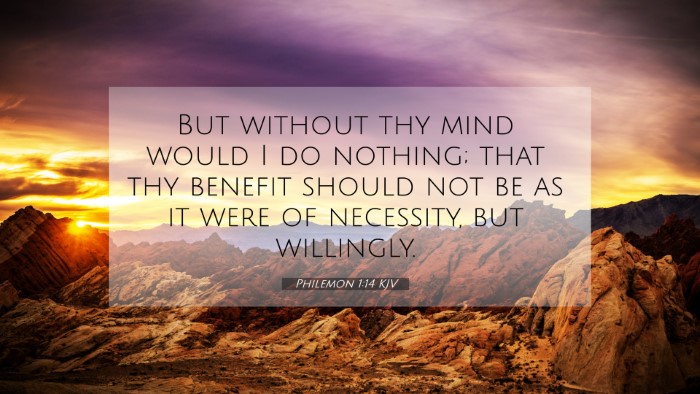Old Testament
Genesis Exodus Leviticus Numbers Deuteronomy Joshua Judges Ruth 1 Samuel 2 Samuel 1 Kings 2 Kings 1 Chronicles 2 Chronicles Ezra Nehemiah Esther Job Psalms Proverbs Ecclesiastes Song of Solomon Isaiah Jeremiah Lamentations Ezekiel Daniel Hosea Joel Amos Obadiah Jonah Micah Nahum Habakkuk Zephaniah Haggai Zechariah MalachiChapter
Philemon 1Verse
Philemon 1:1 Philemon 1:2 Philemon 1:3 Philemon 1:4 Philemon 1:5 Philemon 1:6 Philemon 1:7 Philemon 1:8 Philemon 1:9 Philemon 1:10 Philemon 1:11 Philemon 1:12 Philemon 1:13 Philemon 1:14 Philemon 1:15 Philemon 1:16 Philemon 1:17 Philemon 1:18 Philemon 1:19 Philemon 1:20 Philemon 1:21 Philemon 1:22 Philemon 1:23 Philemon 1:24 Philemon 1:25

